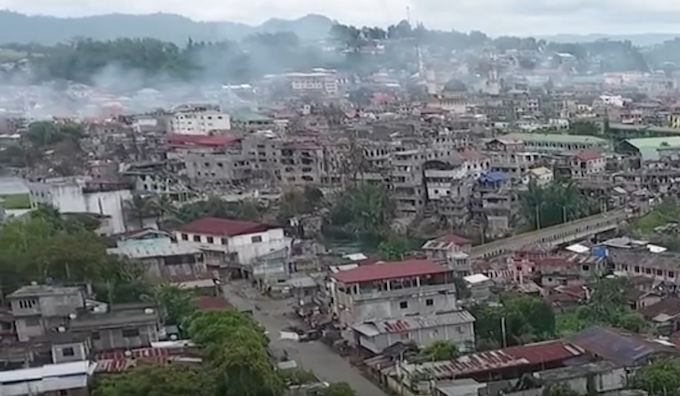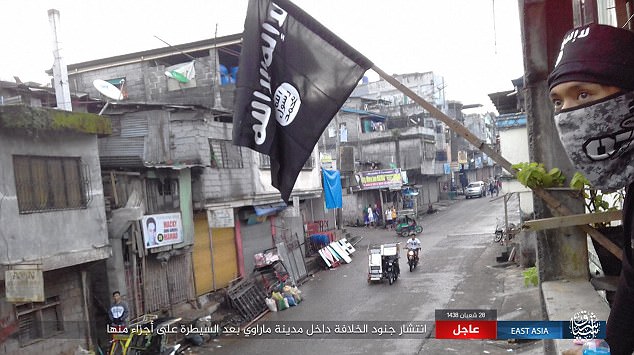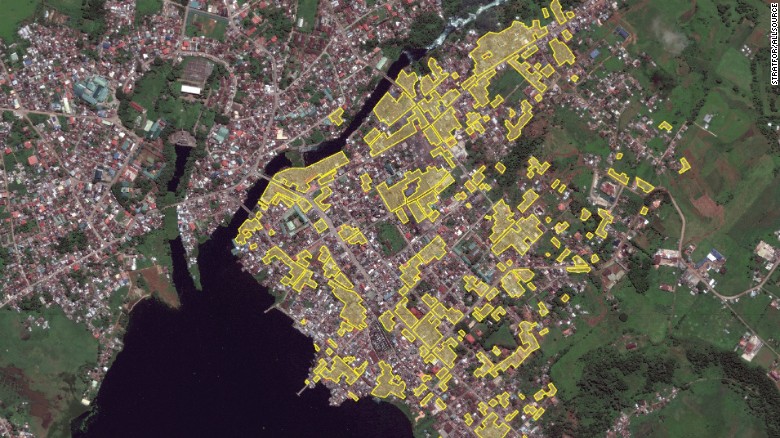
A leading think-tank has warned that the ongoing fighting in Marawi may act as a catalyst for increased terrorist activity in the Philippines.
A report by Jakarta-based Institute of Policy Analysis of Conflict (IPAC) has warned that the ability of Islamic State-affiliated militants to hold the Philippine armed forces at bay for nearly two months was likely to inspire further violence across Southeast Asia.
In a report entitled Marawi, The “East Asia Wilayah” and Indonesia, IPAC has revealed new evidence about a chain of command leading from the militants on the ground in Marawi right up to IS high command in Syria.
In particular, it points a finger at a Malaysian professor called Dr Mahmud bin Ahmad. The report says that foreign jihadists inspired to join the East Asia Wilayah – as the militants in Marawi describe their cause – had to go through him.
He “controlled recruitment as well as financing and has been the contact person for any foreigner wanting to join the pro-IS forces in the Philippines”, the report said.
At the apex of the chain of command is Katibah Nusantara, an IS battalion in Syria made up of Southeast Asian jihadists led by an Indonesian called Bahrumsyah. It is believed he is actively recruiting and funding jihadists to join the uprising in the Philippines.

Risk of increased attacks
“The risks won’t end when the military declares victory,” said Sidney Jones, IPAC director.
“Indonesia and Malaysia will face new threats in the form of returning fighters from Mindanao, and the Philippines will have a host of smaller dispersed cells with the capacity for both violence and indoctrination.”
Chaos erupted in Marawi on May 23, after a failed government raid to arrest IS regional leader, or emir, Hapilon Isnilon. Isnilon, who is also a commander of Abu Sayyaf with a $5 million FBI bounty on his head, was being harboured by the local Maute family islamist group.
Intelligence suggested he was in Marawi in a bid to unite the region’s various islamist factions under the black flag of IS. The strength and durability of the response to the raid suggest he had made headway to this end.
In the weeks of fighting that have followed, estimates of the fighting capabilities of the militants have been steadily inflated, and the presence of foreign jihadis — with at least 20 coming from Indonesia — has been confirmed.
The report also says that islamists in Indonesia have been eyeing the uprising in Marawi, and wondering “why they cannot manage to do anything as spectacular”.
The report continued: “Once the battle for Marawi is over, it is possible that Southeast Asian IS leaders in the Middle East might encourage Indonesians to go after other targets, including foreigners or foreign institutions — especially if one of them comes back to lead the operations.”

Recruitment tool
Some 565 people have died in Marawi, including more than 420 militants, almost 100 government personnel and at least 45 civilians. Almost half a million civilians have been displaced by the fighting, while some continue to be held as human shields by the terrorists.
Having missed several self-imposed deadlines for retaking the city, government officials now say it’s not possible to say when the fighting will end.
National Security Adviser Hermogenes Esperon told reporters today (Friday, July 21) that the militants are now hemmed in to just three barangays, down from the 12 they had previously occupied.
The report also warns that the devastating damage to the city — the largest Muslim settlement in the Philippines — from military air strikes was being exploited as a recruitment tool.
It cited a post on the encrypted social media platform Telegram that said: “We did not bomb it to ashes. We ordained good and forbade evil… but the response of the Crusader Army was brutal.”
The military has defended the use of air strikes saying that snipers had made it difficult for ground troops to manoeuvre in the dense urban environment.

Comments are closed.